Ready to download the source code to 348 PyImageSearch tutorials?
Here are step-by-step instructions to access my master code repo inside PyImageSearch University.
Use OpenCV, TensorFlow, and PyTorch to solve problems using our code in less than 30 minutes
The world's #1 online computer vision course.
You will learn image classification, object detection, and deep learning. Learn all the hot topics faster than any other course. Guaranteed.
Do you think learning computer vision and deep learning has to be time-consuming, overwhelming, and complicated? Or has to involve complex mathematics and equations? Or requires a degree in computer science?
That’s not the case.
All you need to master computer vision and deep learning is for someone to explain things to you in simple, intuitive terms. And that’s exactly what I do. My mission is to change education and how complex Artificial Intelligence topics are taught.
Welcome to PyImageSearch University, the most comprehensive computer vision, deep learning, and OpenCV course online today. Here you’ll learn how to successfully and confidently apply computer vision to your work, research, and projects. Join me in computer vision mastery.
Is PyImageSearch University Worth It?
Created by: Adrian Rosebrock, PhD • Last updated: 2/2026 • Languages: English
What you'll be able to do...
- Successfully complete your computer vision and deep learning projects
- Land a job in the Artificial Intelligence field
- Apply computer vision and deep learning to your job and workplace
- Complete your final graduation project and obtain your undergraduate degree
- Finish your MSc or PhD thesis
- Perform novel research and publish paper in a reputable AI journal
- Learn computer vision and deep learning, and then teach your high school or college students
- Understand computer vision and deep learning, and launch a business in the AI space
- Finish that AI project you are hacking on over nights and weekends
Requirements
In order to be successful in PyImageSearch University, you need the following:
- Understanding of Python basics
- Internet connection
- Windows, macOS, Linux, or Raspbian (all major operating systems supported)
- Free Gmail/Google account to run pre-configured Jupyter Notebooks in Colab (optional)
- A desire to learn
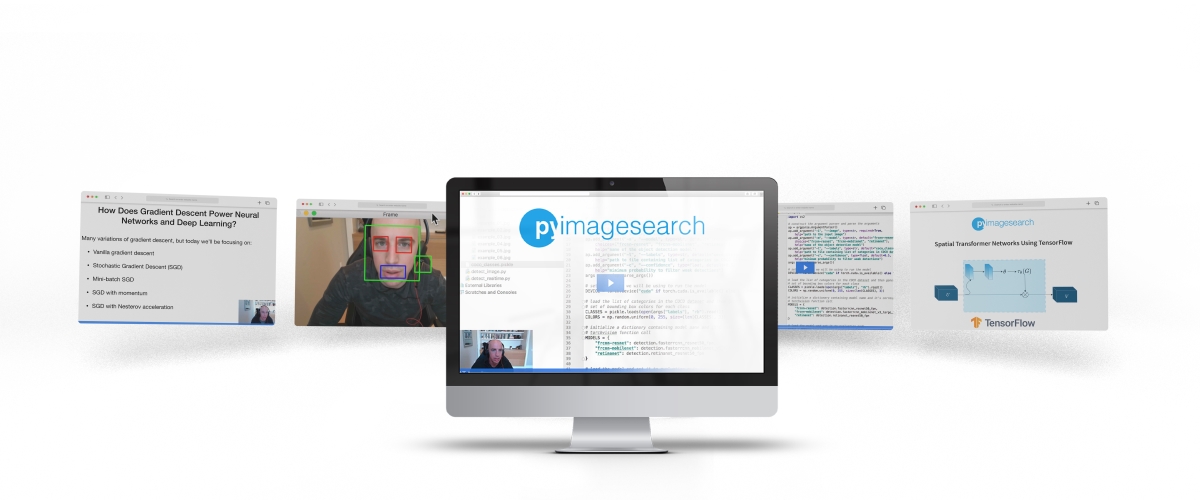
Learn how to track custom objects
Ball tracking, object detection and much more
Learn to track objects, the foundations for hundreds of applications! OpenCV is a popular open-source computer vision library that can be used to track objects in images and videos. Inside this course you will learn how to track a ball in a video using OpenCV which is a foundational computer vision and deep learning task.
What you will learn?
- How to install OpenCV on your computer
- How to use OpenCV to capture video from a webcam or a video file
- How to use OpenCV to find the contours of a ball in a video frame
- How to track the position and motion of a ball in a video
- How to use OpenCV to draw a bounding box around a ball in a video
Why You Should Learn This?
- Sports analytics
- Video surveillance
- Motion-controlled games
- And more
Get Started Today
This course is a great resource for anyone who wants to learn how to track a ball in a video using OpenCV. It is beginner friendly but still has something to teach everyone no matter how experienced you are. Deploy your first project today!
Course description
PyImageSearch University is a comprehensive set of self-paced courses for developers, students, and researchers who are ready to master computer vision, deep learning, and OpenCV. Inside this course you’ll learn how to successfully and confidently apply computer vision to your work, research, and projects.
Unlike other online courses, which are created once and never updated, leaving you with stale, out-of-date information, I keep PyImageSearch University up-to-date by releasing a brand new class every month!
Releasing a new class every month ensures you can keep up with the state-of-the-art in computer vision and deep learning, learn new algorithms and techniques, and:
- Successfully complete your projects at work
- Perform novel research (and publish papers)
- Finish your final graduation project for school
- Launch your next company in the Artificial Intelligence space
To help you accomplish these goals, in each lesson I provide:
- Detailed video tutorials for every lesson
- High-quality, well documented source code with line-by-line explanations (ensuring you know exactly what the code is doing)
- Jupyter Notebooks that are pre-configured to run in Google Colab with a single click
- Support for all major operating systems (Windows, macOS, Linux, and Raspbian)
PyImageSearch University is without a doubt the most complete, comprehensive computer vision education online inside. I’ll see you inside.
Adrian Rosebrock
CEO, PyImageSearch.com
Trusted by members of top artificial intelligence companies, schools, and organizations









Who this course is for:
If any of these descriptions fit you, rest assured, PyImageSearch University is designed for you.
- You are a computer vision practitioner that utilizes deep learning and OpenCV at your day job, and you’re eager to level-up your skills.
- You’re a developer who wants to learn computer vision/deep learning, complete your challenging project at work, and stand out from your coworkers (and land that big promotion).
- You are a college student who needs help with your homework, completing your final graduation project, or you simply want more than what your university offers.
- You are a researcher or scientist looking to apply computer vision and deep learning techniques to your research (and publish a paper).
- You have experience with machine learning and want to learn more about deep learning and neural networks.
- You are an entrepreneur studying computer vision/deep learning so you can launch your next business in the Artificial Intelligence space.
- You are a "computer vision hobbyist" who wants to successfully complete that project you are hacking on over nights and weekends.
- You're a PyImageSearch reader that wants access to centralized repos containing high-quality, well documented source code, pre-trained models, image datasets, etc. for all 348 tutorials on PyImageSearch.com.
- You prefer running code examples with Jupyter Notebooks in Google Colab — my notebooks are pre-configured and ready to run in Google Colab with only a single click.
- You want to skip the painful process of configuring your development environment — no more headaches and wasted time spent configuring your development environment, run all code examples in your web browser!
- You learn best through video tutorials — PyImageSearch University includes video guides for every single lesson.
86 Certificates of Completion
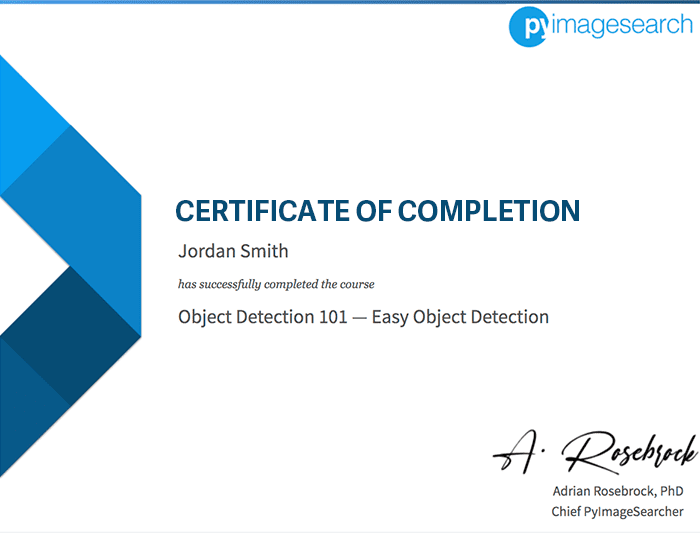
We don’t offer just one Certificate of Completion like most online courses. Instead, we offer a certificate for each of the 86 courses inside PyImageSearch University.
And since a brand new course is released every month, that means each month you receive…
- A brand new course
- A new set of lessons
- A new set of quizzes
- A new final exam
- And another opportunity to demonstrate your computer vision and deep learning knowledge to the world
PyImageSearch graduates have gone on to:
- Perform novel research and publish papers in prestigious journals
- Create and successfully launch the official OpenCV AI Kit (OAK)
- Win 1st place in highly competitive Kaggle competitions
- Land coveted R&D jobs in industry
- Go from developer to CTO of a CV/DL company with over $5.1M in funding in under 3 years
PyImageSearch University is your chance to join them in computer vision and deep learning mastery.
PyImageSearch University syllabus
86 Courses • 348 Classes • 115 h 44m 57s Lectures
OpenCV 101 — OpenCV Basics
12 lessons, 2h 06m 18s
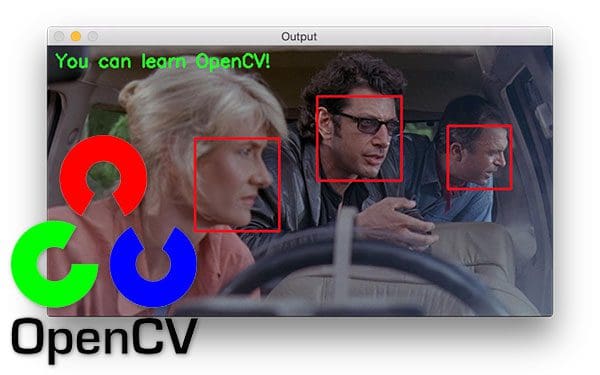
Loading and Displaying Images with OpenCV (12:15)
Lesson Code download Pre-configured Jupyter Notebook Lesson assessment
Image Fundamentals (15:07)
Drawing with OpenCV (16:38)
Translation (8:20)
Rotation (11:01)
Resizing (13:13)
Flipping (3:04)
Cropping (10:16)
Image Arithmetic (12:14)
Bitwise Operations (7:54)
Masking (5:52)
Splitting and Merging Channels (10:24)
Final exam
OpenCV 102 — Basic Image Processing Operations
9 lessons, 2h 32m 07s
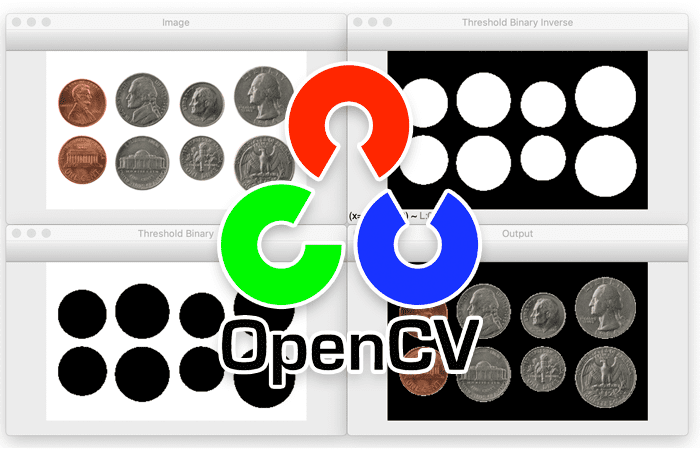
Lesson Code download Pre-configured Jupyter Notebook Lesson assessment
Morphological Operations (19:53)
Smoothing and Blurring (19:57)
Color Spaces
Basic Thresholding (14:19)
Adaptive Thresholding (16:01)
Image Gradients (19:53)
Edge Detection (14:31)
Automatic Edge Detection (10:46)
Final exam
OpenCV 104 — Histograms
5 lessons, 1h 29m 44s
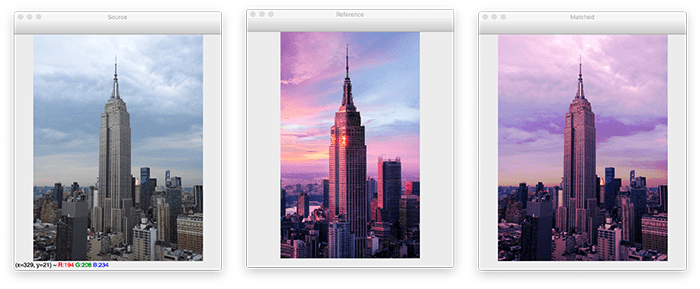
Lesson Code download Pre-configured Jupyter Notebook Lesson assessment
Histogram and Adaptive Histogram Equalization (16:10)
Histogram Matching
Gamma Correction (11:26)
Automatic Color Correction (24:13)
Final exam
Face Applications 101 — Face Detection
4 lessons, 1h 06m 51s
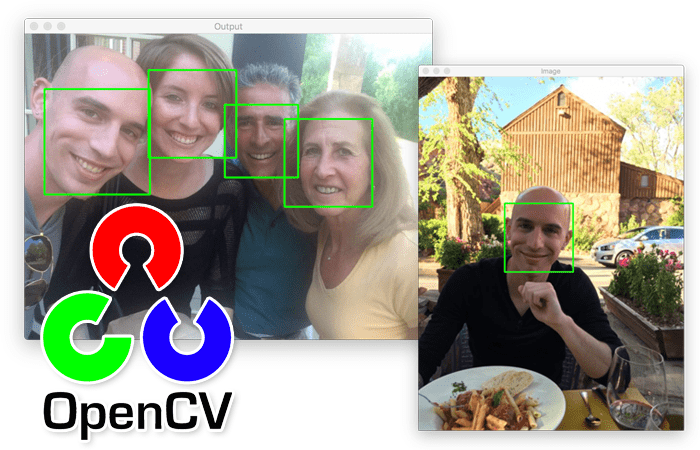
Face Detection with Haar Cascades (19:32)
Lesson Code download Pre-configured Jupyter Notebook Lesson assessment
Deep Learning Face Detection with OpenCV (15:42)
Deep Learning Face Detection with Dlib (18:40)
Choosing a Face Detection Method (12:57)
Final exam
Face Applications 102 — Fundamentals of Facial Landmarks
4 lessons, 0h 51m 56s
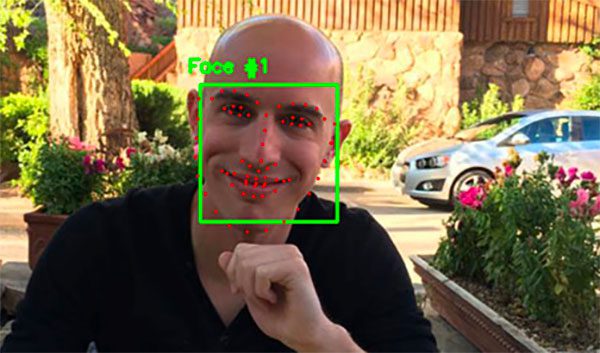
Facial Landmarks with Dlib and and OpenCV (17:36)
Lesson Code download Pre-configured Jupyter Notebook Lesson assessment
Detecting Eyes, Nose, Lips, and Jaw with OpenCV (13:52)
Real-time Facial Landmark Detection (10:41)
5-point Facial Landmark Detection (9:47)
Final exam
Face Recognition 101 — Fundamentals of Facial Recognition
3 lessons, 0h 59m 38s
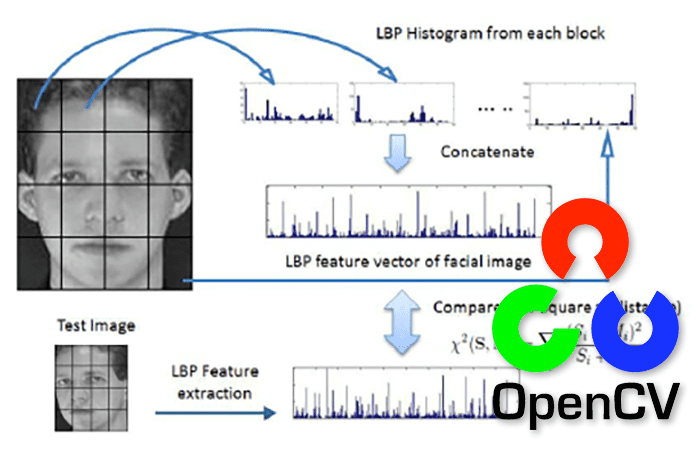
What Is Face Recognition? (11:21)
Lesson Lesson assessment
Face Recognition with Local Binary Patterns (23:29)
OpenCV Eigenfaces for Face Recognition (24:48)
Final exam
Augmented Reality 101 — Fiducials and Markers
6 lessons, 2h 12m 22s
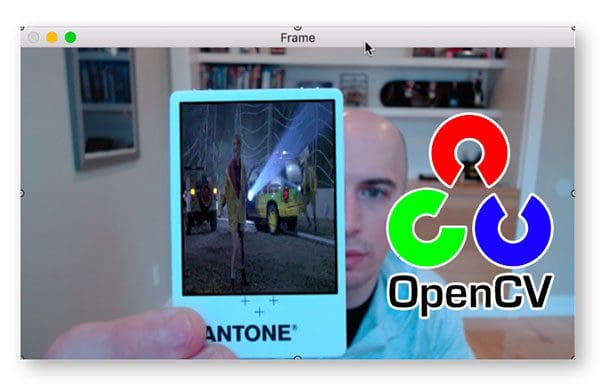
Lesson Code download Pre-configured Jupyter Notebook Lesson assessment
Generating ArUco Markers with OpenCV (19:36)
Detecting ArUco Markers with OpenCV (24:08)
Automatically Determining ArUco Marker Type (18:26)
Augmented Reality with ArUco Markers (24:18)
Real-time Augmented Reality with OpenCV (23:11)
Final exam
Deep Learning 101 — NNs and Parameterized Learning
5 lessons, 0h 56m 35s
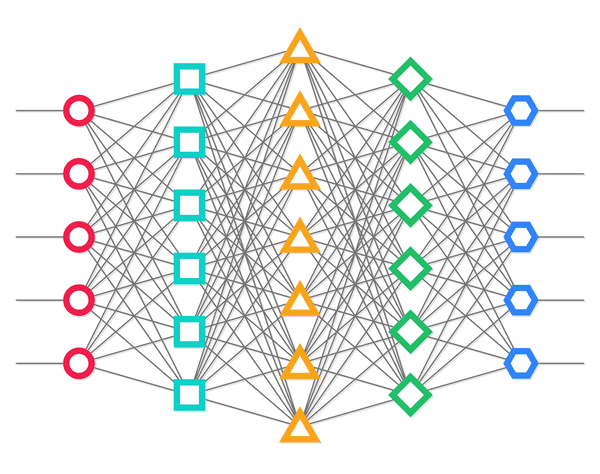
What is Deep Learning? (13:34)
Lesson Lesson assessment
Image Classification Basics (6:31)
The Deep Learning Classification Pipeline (5:11)
Your First Image Classifier: Using k-NN to Classify Images
Parameterized Learning and Neural Networks (11:19)
Final exam
Deep Learning 102 — Optimization Methods and Regularization
4 lessons, 1h 13m 10s
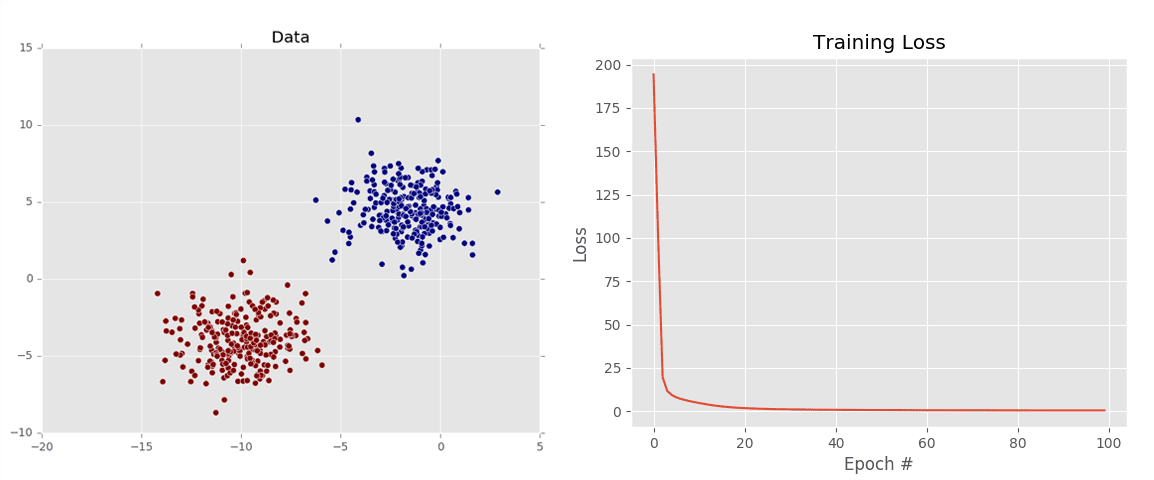
Understanding and Implementing Gradient Descent (27:29)
Lesson Code download Pre-configured Jupyter Notebook Lesson assessment
Stochastic Gradient Descent (SGD) with Python (18:50)
Gradient Descent Algorithms and Variations (16:08)
Regularization Techniques (10:43)
Final exam
Deep Learning 103 — Neural Network Fundamentals
6 lessons, 2h 03m 30s
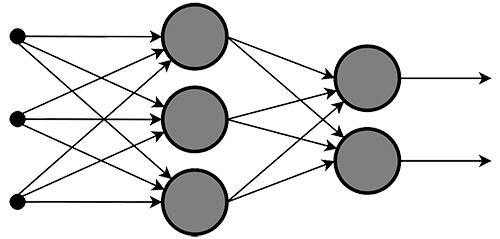
Introduction to Neural Networks (11:02)
Lesson Lesson assessment
Implementing the Perceptron Neural Network with Python (21:21)
Backpropagation from Scratch with Python (39:46)
Implementing Feedforward Neural Networks with Keras and TensorFlow (27:40)
The 4 Key Ingredients When Training Any Neural Network (14:25)
Understanding Weight Initialization for Neural Networks (9:16)
Final exam
Deep Learning 104 — Convolutional Neural Networks (CNNs)
3 lessons, 0h 49m 28s
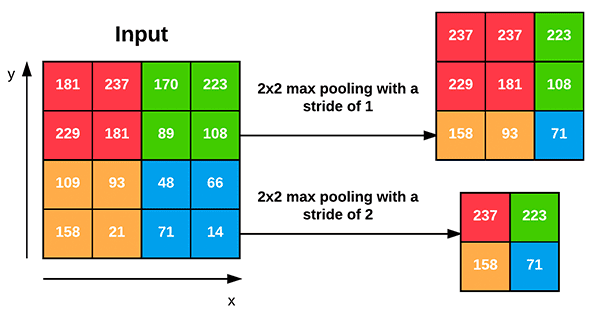
Convolution and Cross-correlation in Neural Networks (15:33)
Lesson Code download Pre-configured Jupyter Notebook Lesson assessment
Convolutional Neural Networks (CNNs) and Layer Types (26:44)
Are CNNs Invariant to Translation, Rotation, and Scaling? (7:11)
Final exam
Deep Learning 105 — Hands-on Experience with CNNs
7 lessons, 1h 42m 49s
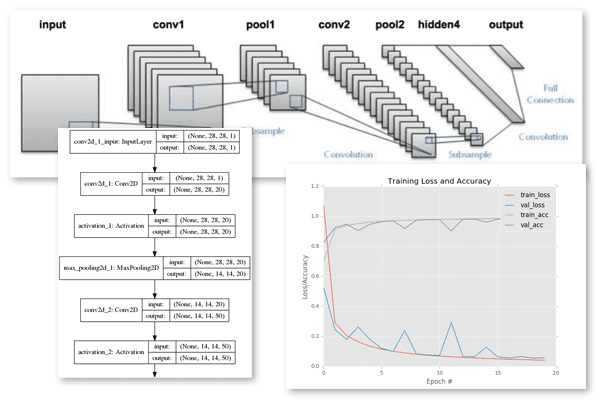
A Gentle Guide to Training your First CNN with Keras and TensorFlow (24:26)
Lesson Code download Pre-configured Jupyter Notebook Lesson assessment
Save Your Keras and TensorFlow Model to Disk (9:55)
Load a Trained Keras/TensorFlow Model from Disk (9:16)
LeNet: Recognizing Handwritten Digits
MiniVGGNet: Going Deeper with CNNs (20:54)
Visualizing Network Architectures Using Keras and TensorFlow (7:20)
Pre-trained CNNs for Image Classification (14:58)
Final exam
Deep Learning 120 — Regression with CNNs
3 lessons, 1h 13m 07s
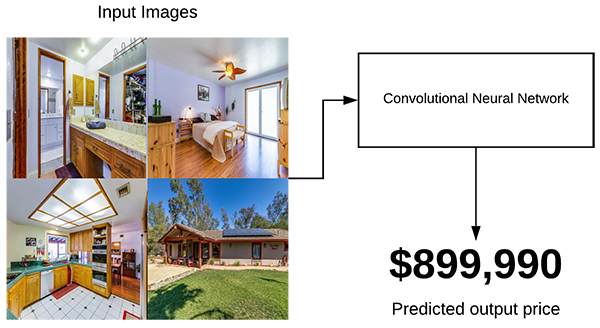
Regression with Neural Networks (23:41)
Lesson Code download Pre-configured Jupyter Notebook Lesson assessment
Regression with CNNs (25:15)
Combining Categorical, Numerical, and Image Data Into a Single Neural Network (24:11)
Final exam
Deep Learning 125 — Data Pipelines with tf.data
3 lessons, 1h 19m 52s
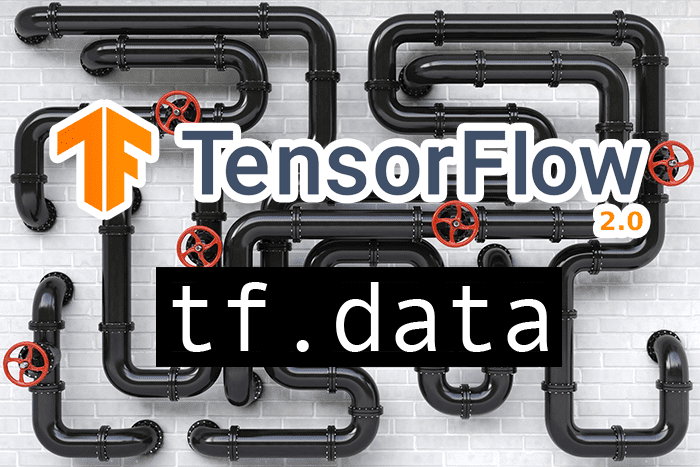
A Gentle Introduction to tf.data with TensorFlow (28:49)
Lesson Code download Pre-configured Jupyter Notebook Lesson assessment
Data Pipelines with tf.data and TensorFlow (22:03)
Data Augmentation with tf.data and TensorFlow
Final exam
Deep Learning 130 — Hyperparameter Tuning
4 lessons, 1h 19m 24s
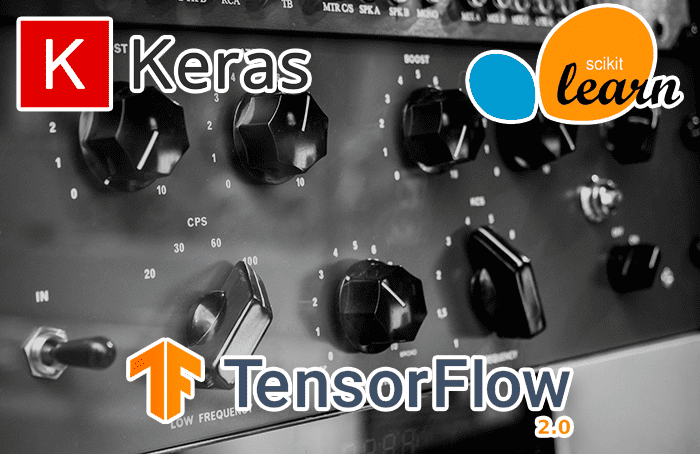
Introduction to Hyperparameter Tuning (24:30)
Lesson Code download Pre-configured Jupyter Notebook Lesson assessment
Hyperparameter Tuning for Computer Vision Projects (16:34)
Using scikit-learn to Tune Deep Learning Model Hyperparameters (18:28)
Easy Hyperparameter Tuning with Keras Tuner (19:52)
Final exam
PyTorch 101 — Fundamentals of PyTorch
5 lessons, 1h 28m 45s
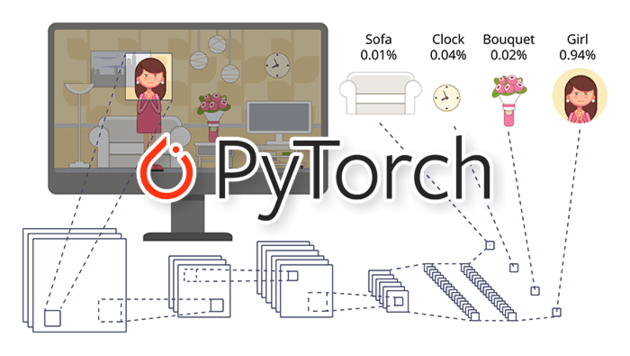
Lesson Lesson assessment
Your First Neural Network with PyTorch (16:21)
Training Your First CNN with PyTorch (25:45)
Image Classification with Pre-Trained Networks and PyTorch (10:15)
Object Detection with Pre-Trained Networks and PyTorch (11:27)
Final exam
PyTorch 102 — Intermediate PyTorch for CV techniques
3 lessons, 1h 17m 24s
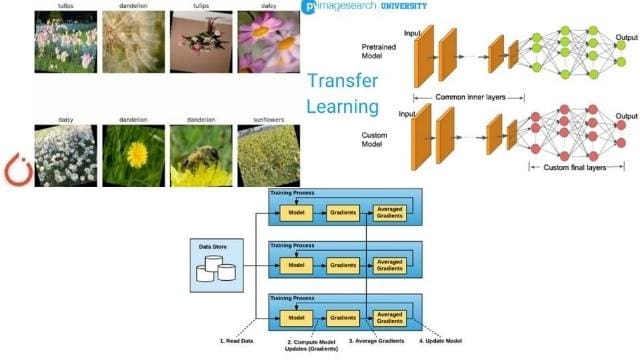
DataLoader for Image Data (23:07)
Lesson Code download Pre-configured Jupyter Notebook Lesson assessment
PyTorch: Transfer Learning and Image Classification (47:49)
Introduction to Distributed Training in PyTorch (6:28)
Final exam
PyTorch 103 — Advanced PyTorch techniques
2 lessons, 0h 12m 00s
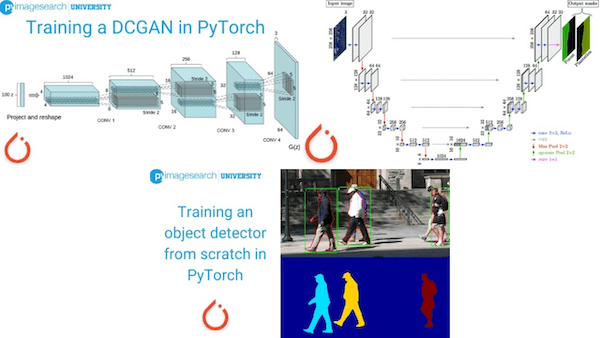
Training a DCGAN in PyTorch (5:54)
Lesson Code download Pre-configured Jupyter Notebook Lesson assessment
Training an object detector from scratch in PyTorch (6:06)
Final exam
Autoencoders 101 — Intro to Autoencoders
4 lessons, 1h 36m 13s
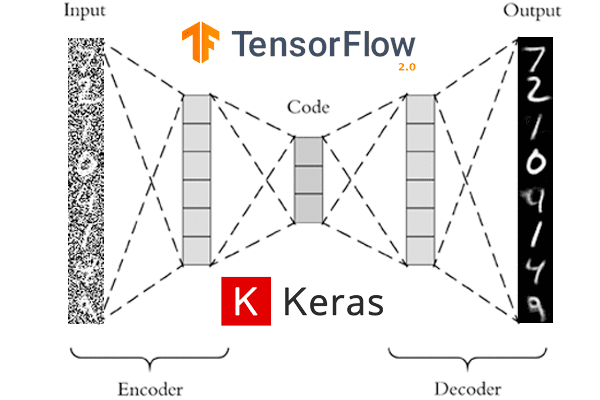
Autoencoders with Keras and TensorFlow (27:23)
Lesson Code download Pre-configured Jupyter Notebook Lesson assessment
Denoising Autoencoders with Keras and TensorFlow (14:16)
Anomaly Detection with Autoencoders (29:04)
Autoencoders for Content-based Image Retrieval (CBIR) (25:30)
Final exam
Siamese Networks 101 — Intro to Siamese Networks
4 lessons, 1h 52m 23s
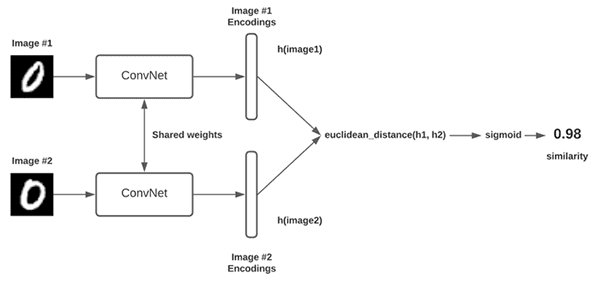
Building Image Pairs for Siamese Networks (26:42)
Lesson Code download Pre-configured Jupyter Notebook Lesson assessment
Implementing Your First Siamese Network with Keras and TensorFlow (32:24)
Comparing Images for Similarity with Siamese Networks (23:12)
Improving Accuracy with Contrastlive Loss (30:05)
Final exam
Image Adversaries 101 — Intro to Image Adversaries
5 lessons, 2h 26m 52s
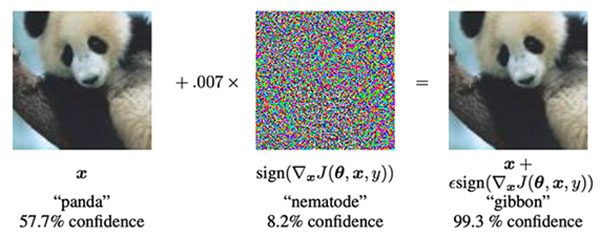
Adversarial Images and Attacks with Keras and TensorFlow (26:38)
Lesson Code download Pre-configured Jupyter Notebook Lesson assessment
Targeted Adversarial Attacks with Keras and TensorFlow (40:02)
Adversarial Attacks with FGSM (Fast Gradient Signed Method) (21:03)
Defending Against Adverserial Attacks (27:50)
Mixing Normal Images and Adversarial Images when Training CNNs (31:19)
Final exam
Object Detection 101 — Easy Object Detection
7 lessons, 1h 51m 16s
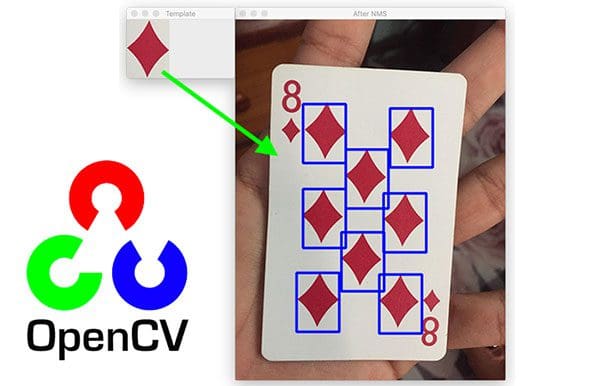
Shape Detection with OpenCV (14:07)
Lesson Code download Pre-configured Jupyter Notebook Lesson assessment
Template Matching with OpenCV (14:52)
Multi-template Matching (15:17)
Multi-scale Template Matching (21:34)
Haar Cascades with OpenCV (13:03)
Deep Learning Object Detectors with OpenCV (17:21)
Real-time Deep Learning Object Detection with OpenCV (15:02)
Final exam
Object Detection 201 — Fundamentals of Deep Learning Object Detection
4 lessons, 2h 29m 02s
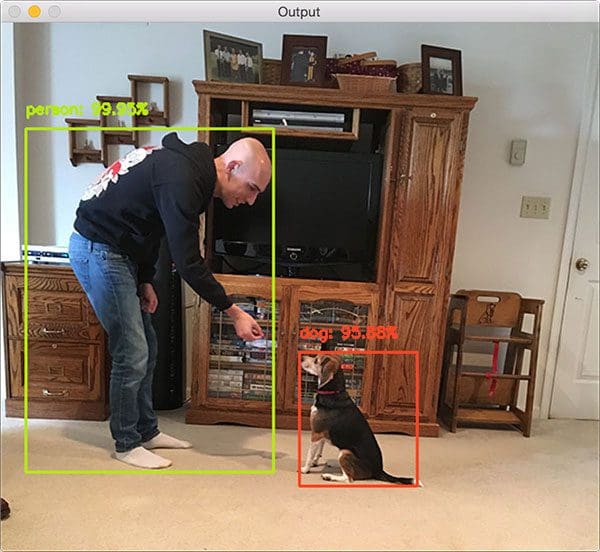
Turning Any Deep Learning Image Classifier into an Object Detector (44:28)
Lesson Code download Pre-configured Jupyter Notebook Lesson assessment
Selective Search for Object Detection (19:51)
Region Proposal Object Detection (25:34)
Training Your Own R-CNN Object Detector (59:09)
Final exam
Object Detection 202 — Bounding Box Regression
2 lessons, 1h 01m 06s
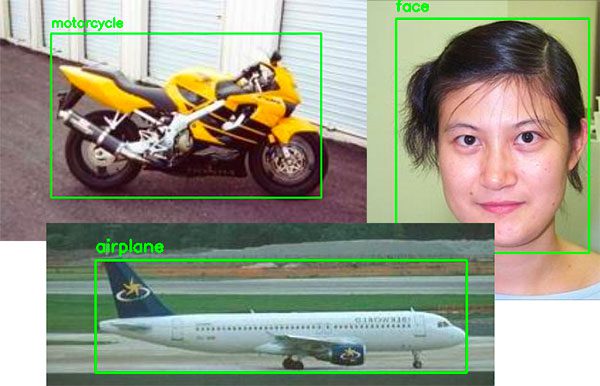
Bounding Box Regression (31:45)
Lesson Code download Pre-configured Jupyter Notebook Lesson assessment
Multi-class Bounding Box Regression (29:21)
Final exam
OCR 101 — Fundamentals of Optical Character Recognition
3 lessons, 0h 32m 07s
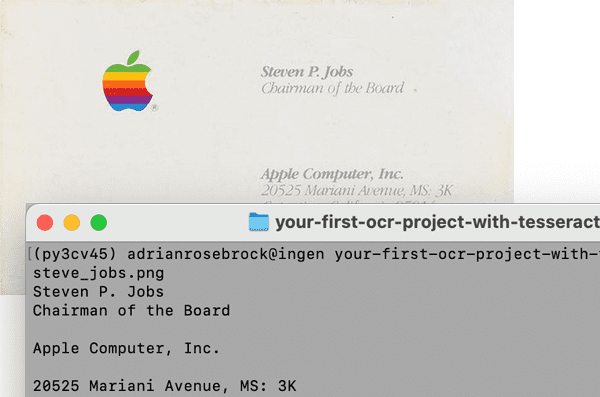
What is Optical Character Recognition (OCR)? (17:20)
Lesson Lesson assessment
Installing Tesseract, PyTesseract, and Python OCR Packages On Your System (5:51)
Your First OCR Project with Tesseract and Python (8:56)
Final exam
OCR 110 — Using Tesseract for Translation and Non-English Languages
5 lessons, 0h 42m 11s

Detecting and OCR’ing Digits with Tesseract and Python (4:15)
Lesson Code download Pre-configured Jupyter Notebook Lesson assessment
Whitelisting and Blacklisting Characters with Tesseract and Python (7:46)
Correcting Text Orientation with Tesseract and Python (7:27)
Language Translation and OCR with Tesseract and Python (7:37)
Using Tesseract with Non-English Languages (15:06)
Final exam
OCR 210 — EasyOCR, Aligning Documents, and OCR'ing Documents
3 lessons, 0h 56m 31s
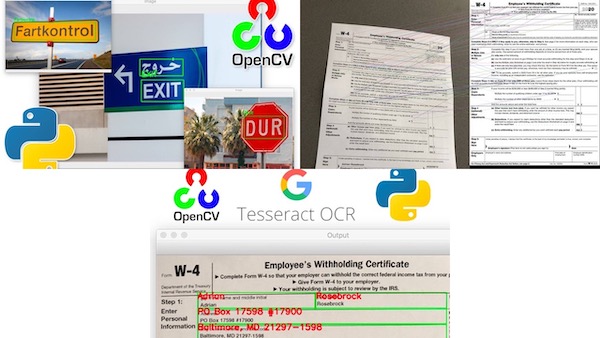
Making OCR "Easy" with EasyOCR (11:56)
Lesson Code download Pre-configured Jupyter Notebook Lesson assessment
Image/Document Alignment and Registration (19:22)
OCR’ing a Document, Form, or Invoice (25:13)
Final exam
Visual Fusion For Autonomous Cars 101 — Intro to LiDAR and Sensor Fusion
11 lessons, 1h 22m 16s
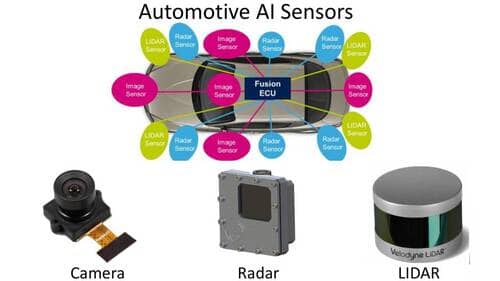
Welcome to Visual Sensor Fusion (2:13)
Lesson assessment
What to Expect from This Course
Understanding Cameras (11:47)
Understanding LiDARs (8:23)
Review of Sensors in Self-Driving Cars
Sensor Fusion (8:51)
Point Pixel Project (4:08)
Projecting a LiDAR Point (3D) to an Image (2D) (4:30)
Applying the Magic Formula (5:53)
3D-2D Visualizations (11:58)
Coding the Magic Forumula (24:33)
Final exam
PyImageSearch University is really the best Computer Visions "Masters" Degree that I wish I had when starting out. Being able to access all of Adrian's tutorials in a single indexed page and being able to start playing around with the code without going through the nightmare of setting up everything is just amazing. 10/10 would recommend.
Not going to kid you: PyImageSearch University is worth every cent. I get asked ALL the time at my talks how I got started. PyImageSearch was the foundation.
This is a fantastic, unique resource. Where else can you get such brilliant tuition in such a wide variety of computer vision topics for such a low monthly cost? Nowhere is the answer. Highly recommended.
At the age of 58, learning ML, Computer Vision and Python all in parallel with no prior programming background was a steep learning curve and without PyImageSearch this could not have been possible. PyImageSearch brought it all nicely together.
When I first undertook my current ongoing robotics project my goals were very modest. Then I discovered PyImageSearch and found that I could go light-years beyond what I thought myself capable of back then. Through Adrian's detailed and easy-to-follow tutorials, I have achieved functionality goals I wouldn't have dared dream of before. My understanding and implementation of Python, along with a number of computer vision and machine learning concepts puts me on a par with some of the best programmers I've worked with. I couldn't have achieved this level of satisfaction without Adrian and his organization, and I am very grateful.
As a CS professor, I scaffold experiences so that my students build confidence, comfort, and enjoyment across all of the "pixel-processing's realm." Adrian's Jupyter/Colab materials are both invaluable -- and far more valuable than their price!
The PyImageSearch tutorials have been the most to the point content I have seen. I have always been able to get straightforward solutions for most of my Computer Vision and Deep Learning problems that I face in my day-to-day work life. Courses like this is what helps people and industries around the world to make quick and efficient solutions to their problems in real time.
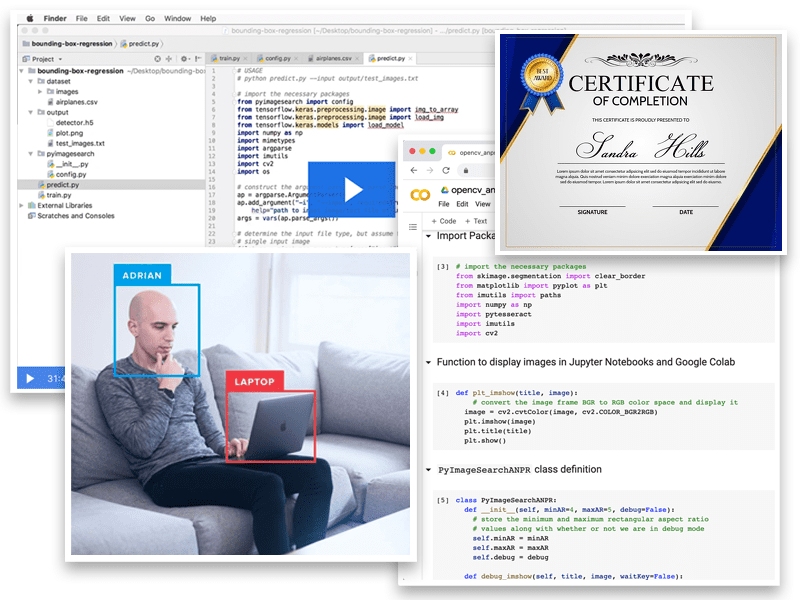
500+ Fully Coded Project
Get instant code access, courses, certificates of completion, and video code walkthroughs.
No Risk 100% Money Back Guarantee!

Full access to PyImageSearch University
Brand new courses released every month, ensuring you can keep up with state-of-the-art techniques
115 hours on-demand video
86 courses on essential computer vision, deep learning, and OpenCV topics
94 Certificates of Completion
540 tutorials and downloadable resources
Pre-configured Jupyter Notebooks in Google Colab for 338 PyImageSearch tutorials
Run all code examples in your web browser — works on Windows, macOS, and Linux (no dev environment configuration required!)
Access to centralized code repos for all 348 tutorials on PyImageSearch
Easy one-click downloads for code, datasets, pre-trained models, etc.
Access on mobile, laptop, desktop, etc.
As a CS professor, I scaffold experiences so that my students build confidence, comfort, and enjoyment across all of the "pixel-processing's realm." Adrian's Jupyter/Colab materials are both invaluable -- and far more valuable than their price!
PyImageSearch University is really the best Computer Visions "Masters" Degree that I wish I had when starting out. Being able to access all of Adrian's tutorials in a single indexed page and being able to start playing around with the code without going through the nightmare of setting up everything is just amazing. 10/10 would recommend.
When I first undertook my current ongoing robotics project my goals were very modest. Then I discovered PyImageSearch and found that I could go light-years beyond what I thought myself capable of back then. Through Adrian's detailed and easy-to-follow tutorials, I have achieved functionality goals I wouldn't have dared dream of before. My understanding and implementation of Python, along with a number of computer vision and machine learning concepts puts me on a par with some of the best programmers I've worked with. I couldn't have achieved this level of satisfaction without Adrian and his organization, and I am very grateful.
At the age of 58, learning ML, Computer Vision and Python all in parallel with no prior programming background was a steep learning curve and without PyImageSearch this could not have been possible. PyImageSearch brought it all nicely together.
Not going to kid you: PyImageSearch University is worth every cent. I get asked ALL the time at my talks how I got started. PyImageSearch was the foundation.
This is a fantastic, unique resource. Where else can you get such brilliant tuition in such a wide variety of computer vision topics for such a low monthly cost? Nowhere is the answer. Highly recommended.
The PyImageSearch tutorials have been the most to the point content I have seen. I have always been able to get straightforward solutions for most of my Computer Vision and Deep Learning problems that I face in my day-to-day work life. Courses like this is what helps people and industries around the world to make quick and efficient solutions to their problems in real time.
Frequently Asked Questions
I already have a PyImageSearch University account. How do I login?
Thank you for being a member of PyImageSearch University! You can login here.
Do I need any programming experience before joining PyImageSearch University?
We assume you have some prior programming experience (e.g. you know what a variable, function, loop, etc. are). You should have more skills than a novice, but certainly not an intermediate or advanced developer. As long as you understand basic programming logic flow you'll be successful inside PyImageSearch University.
Do I need to know anything about computer vision, deep learning, or OpenCV to get started in PyImageSearch University?
No. The courses inside PyImageSearch University will teach you computer vision, deep learning, and OpenCV. As long as you have basic programming experience you will be successful inside PyImageSearch University.
What happens after I purchase?
After you purchase you will be able to login and immediately access any code downloads, Jupyter Notebooks, video tutorials, courses, certificates of completion, etc.
What courses should I be taking in University?
Our support team is happy to work with you to figure out which of our 50+ courses you should be taking and in the best order to address your personal learning goals. If you are a current customer, reply to your onboarding emails or email us directly at ask@pyimagesearch.com with Subj: Customize My Learning Path. A real human (and AI Engineer) will respond to help you.
Do I need any special software or hardware?
No. All of our courses, coding exercises, etc. can be completed inside your browser using our pre-configured Jupyter Notebooks running in Google Colab. If you prefer to instead configure your local development environment, we provide install instructions as well.
How will I be charged?
- Monthly and Yearly Memberships:
- Lifetime Membership:
For monthly and yearly memberships, your designated payment method will be charged automatically on a recurring basis (monthly or yearly, depending on your subscription type) starting from the sign-up date.
You can cancel your subscription at any time, and cancellation will take effect at the end of the current billing period. No refunds or prorated refunds are provided for unused portions of the current subscription term.
Lifetime memberships are a one-time payment. There are no recurring charges, and you will enjoy ongoing access to PyImageSearch University at no additional cost.
Can I upgrade my account from one membership to another?
Yes! Simply select the membership you would like to upgrade to and join. Your old membership will be automatically cancelled so you don’t have to worry about cancelling it or being double-billed.
Can I pause/cancel my account?
Yes. Once you login, click your profile icon, followed by “Settings” and “Billing Info”. From there you can edit your payment method or cancel/pause your membership.
What is your refund policy?
We want you to feel confident in your investment, which is why we offer a 30-day money-back guarantee for all initial purchases, including the first payment of subscription memberships. Here’s how it works:
- Initial Purchases (First Payment of Subscriptions or One-Time Purchases):
- Subscription Renewals:
If you’re not satisfied with your initial purchase, you may request a refund within 30 days of your purchase date. Simply email us with your order details, and we’ll process your request promptly.
Refunds are not available for subscription renewals. To avoid being charged for the next billing cycle, you must cancel your subscription before your renewal date. Cancellation will take effect at the end of your current subscription term, and you will retain access until the term ends.
If you’re considering canceling, please reach out to us! We’d love to help by creating a custom learning path or pointing you to resources that suit your current goals.
For complete details, visit our Terms of Use.
Do you offer bulk PyImageSearch University memberships to businesses, colleges, etc.?
Yes! Just send me a message via my contact form and we can schedule a call to discuss getting your organization access to PyImageSearch University.






